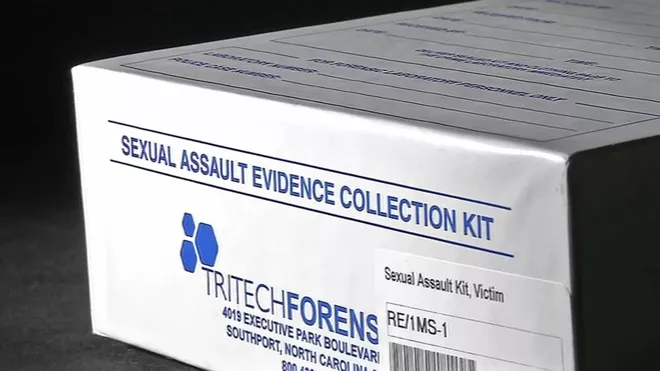'INSURMOUNTABLE CHALLENGE'
A Spokane psychiatrist could be held responsible for a DOUBLE MURDER committed by one of his patients, according to a Washington State Supreme Court ruling. The 6-3 ruling could also have major implications for the future of mental health treatment statewide.
Jan DeMeerleer shot and killed his ex-fiancée, Rebecca Schiering, and one of her 9-year-old sons in July 2010, shortly after she called off their engagement. DeMeerleer tried to slash the throat of another of Schiering's sons, but the boy got away. DeMeerleer, who was diagnosed with bipolar disorder and previously had suicidal and homicidal thoughts, later took his own life.
Schiering's mother, Beverly Volk, sued DeMeerleer's psychiatrist, Howard Ashby, claiming that he failed to adequately treat DeMeerleer and neglected his duty to protect potential victims of violence.
Ashby had been treating DeMeerleer on and off since 2001. About three months before the murder-suicide, DeMeerleer met with Ashby following a dispute with Schiering. He expressed suicidal thoughts, but said he would not act on them, according to court documents.
"At this point it's not a real clinical problem but we will keep an eye on it," Ashby writes in his notes. Ashby decided to continue with DeMeerleer's medication regimen, but did nothing else, court documents say, despite DeMeerleer's history of not taking his meds.
In its ruling, the state's high court rejected Ashby's argument that state law shields mental health professionals from liability unless they hear a threat against a specific person or place. DeMeerleer did not specifically threaten Schiering or her children, and family and friends testified that they did not suspect he was capable of such crimes.
But Ashby's "special relationship" with DeMeerleer meant he had a duty to protect potential victims, the court ruled.
In her majority opinion, Justice Mary Fairhurst acknowledges the difficulty of determining a patient's propensity for violence. However, when mental health professionals form "special relationship[s]" with patients, they have a "duty of reasonable care to act consistent with the standards of the mental health profession and to protect the foreseeable victims of his or her patient," she writes.
Ashby's attorney, Bob Sestero, says the ruling is overly broad and raises major issues for the future of patients' rights and the underfunded mental health system. Psychiatrists looking to avoid potential legal action might be quicker to request involuntarily commitments for a patient or violate doctor-patient confidentiality, Sestero says.
"I still feel strongly that Dr. Ashby did everything right and there was no foreseeing the horrendous actions that Mr. DeMeerleer undertook," Sestero says. "The interesting problem is that the mental health professional has to be able to know the unspoken thoughts of a patient at this point. That's an insurmountable challenge." (MITCH RYALS)
UNTESTED IN IDAHO
For victims of alleged sexual assault, the process of having DNA evidence collected from their body or clothes can be invasive and last up to six hours. When it's over, victims often expect the results of the sexual assault forensic exam, known as a RAPE KIT, to be tested so police can help identify potential serial predators.
But in Idaho, law enforcement has failed to submit nearly half of the rape kits to be tested at all, according to a state audit.
The Idaho State Police released the audit in December in response to a law effective July 1, 2016, that required Idaho State Police Forensic Services to provide a report of all untested rape kits in the state to the Idaho legislature. Statewide, 541 kits identified in the 2016 survey have not been submitted to the lab.
The Kootenai County Sheriff's Office had 114 rape kits in its possession, but 69 kits have gone untested, according to the audit. The Coeur d'Alene Police Department had 62 kits, but 23 have not been tested.
There are a few reasons some kits may have gone untested, says Coeur d'Alene police spokesman Jared Reneau. Law enforcement used to not automatically send kits to the state crime lab if the victim was anonymous, or if there was a "better piece of evidence" sent to the lab. For instance, of the 23 rape kits that have not been tested in Coeur d'Alene, 10 are no longer being investigated as a crime and 10 more were from anonymous victims, so the audit lists only three kits that still need to be tested by the lab (for the Kootenai County Sheriff's Office, the number of kits requiring testing is 53).
Idaho state law enacted last year should increase the number of kits submitted to the state crime lab, Reneau says. Now, law enforcement agencies need approval from the county prosecutor if they don't think that a rape kit should be tested, and they must document all rape kits. Reneau expects, with the changes to state law, that if an audit report is released next year, then the untested kits "will be a very, very small percentage." (WILSON CRISCIONE)




















